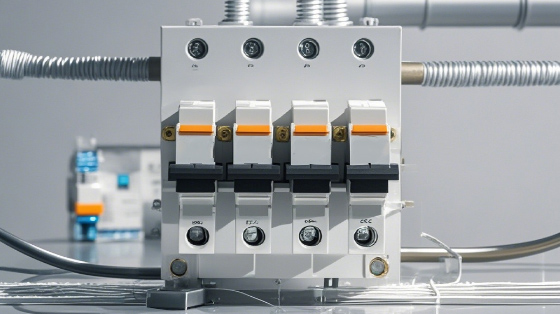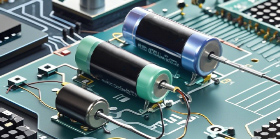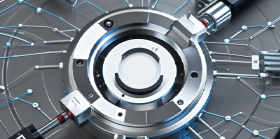The Crucial Role of Isolators in Modern Technology
2024/10/25 11:32:17
In the ever-evolving landscape of modern technology, one often overlooked yet essential component is the isolator. Isolators play a vital role in ensuring the smooth and reliable operation of a wide range of electronic systems and industrial processes.
At its core, an isolator is a device that provides electrical isolation between two circuits or systems. This isolation is crucial for several reasons. Firstly, it helps to protect sensitive electronic components from electrical noise, interference, and voltage spikes. In today's complex electronic environments, where multiple devices and systems operate in close proximity, electrical noise and interference can be a significant problem. Isolators act as a barrier, preventing this noise from propagating from one circuit to another and ensuring the proper functioning of sensitive equipment.
Secondly, isolators are essential for safety purposes. In many industrial and medical applications, electrical isolation is required to protect operators and patients from electrical shock hazards. By separating high-voltage or potentially dangerous circuits from low-voltage or sensitive ones, isolators help to minimize the risk of electrical accidents and ensure a safe working environment.

Isolators come in various forms and types, each designed to meet specific application requirements. One common type is the optical isolator, which uses light to transfer signals between two circuits while providing electrical isolation. Optical isolators are widely used in telecommunications, data communication, and industrial control systems. They offer high isolation voltage, fast response times, and immunity to electromagnetic interference.
Another type of isolator is the magnetic isolator, which uses a magnetic field to transfer energy between two circuits. Magnetic isolators are often used in power electronics applications, such as DC-DC converters and motor drives. They provide high isolation resistance, low leakage current, and excellent thermal stability.
In addition to optical and magnetic isolators, there are also capacitive isolators and transformer isolators. Capacitive isolators use a capacitor to couple signals between two circuits while providing electrical isolation. They are typically used in applications where high isolation voltage and low capacitance are required. Transformer isolators, on the other hand, use a transformer to transfer power between two circuits while providing electrical isolation. They are commonly used in power supplies and industrial automation systems.
The applications of isolators are diverse and span across multiple industries. In the telecommunications industry, isolators are used in fiber optic communication systems to prevent signal degradation and interference. They help to ensure the reliable transmission of high-speed data over long distances. In the medical field, isolators are used in medical equipment such as patient monitors, defibrillators, and imaging systems to protect patients and operators from electrical hazards. In the industrial sector, isolators are used in process control systems, factory automation, and power distribution systems to ensure the safe and reliable operation of industrial processes.
As technology continues to advance, the demand for isolators is expected to grow. With the increasing complexity of electronic systems and the need for higher levels of safety and reliability, isolators will continue to play a crucial role in the development of new technologies. For example, in the emerging field of electric vehicles, isolators are essential for ensuring the safety of high-voltage battery systems and power electronics. In the field of renewable energy, isolators are used in solar inverters and wind turbine controllers to provide electrical isolation and protect the equipment from voltage spikes and surges.
In conclusion, isolators are an essential component of modern technology. They provide electrical isolation, protect sensitive equipment, and ensure safety in a wide range of applications. As technology continues to evolve, the importance of isolators will only increase, and their role in shaping the future of technology is undeniable. Whether it's in telecommunications, medical devices, industrial automation, or emerging technologies like electric vehicles and renewable energy, isolators will continue to be a crucial part of our technological landscape.
Related Information

- 2025.05.12 Intel terminates Deep Link program



